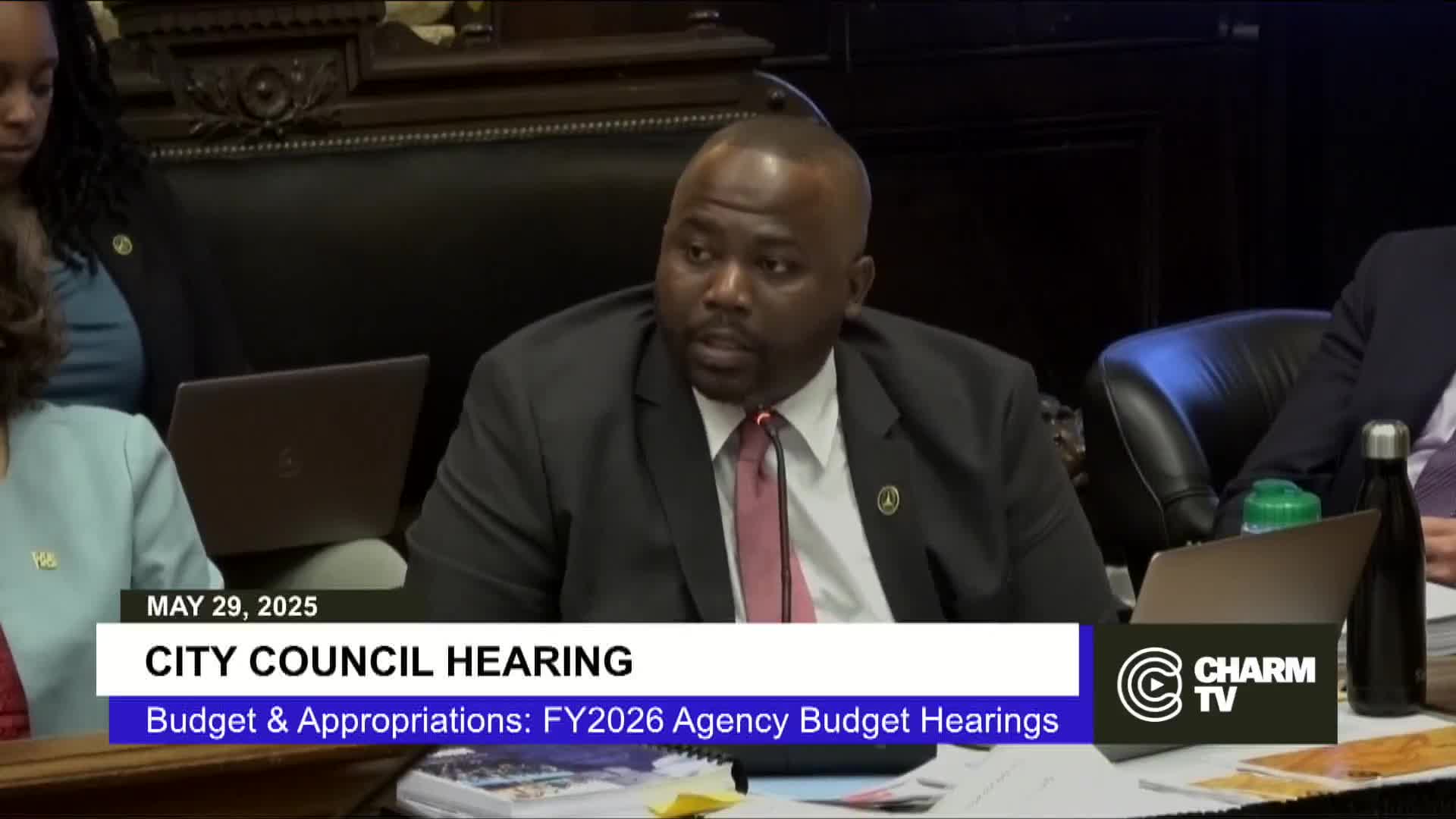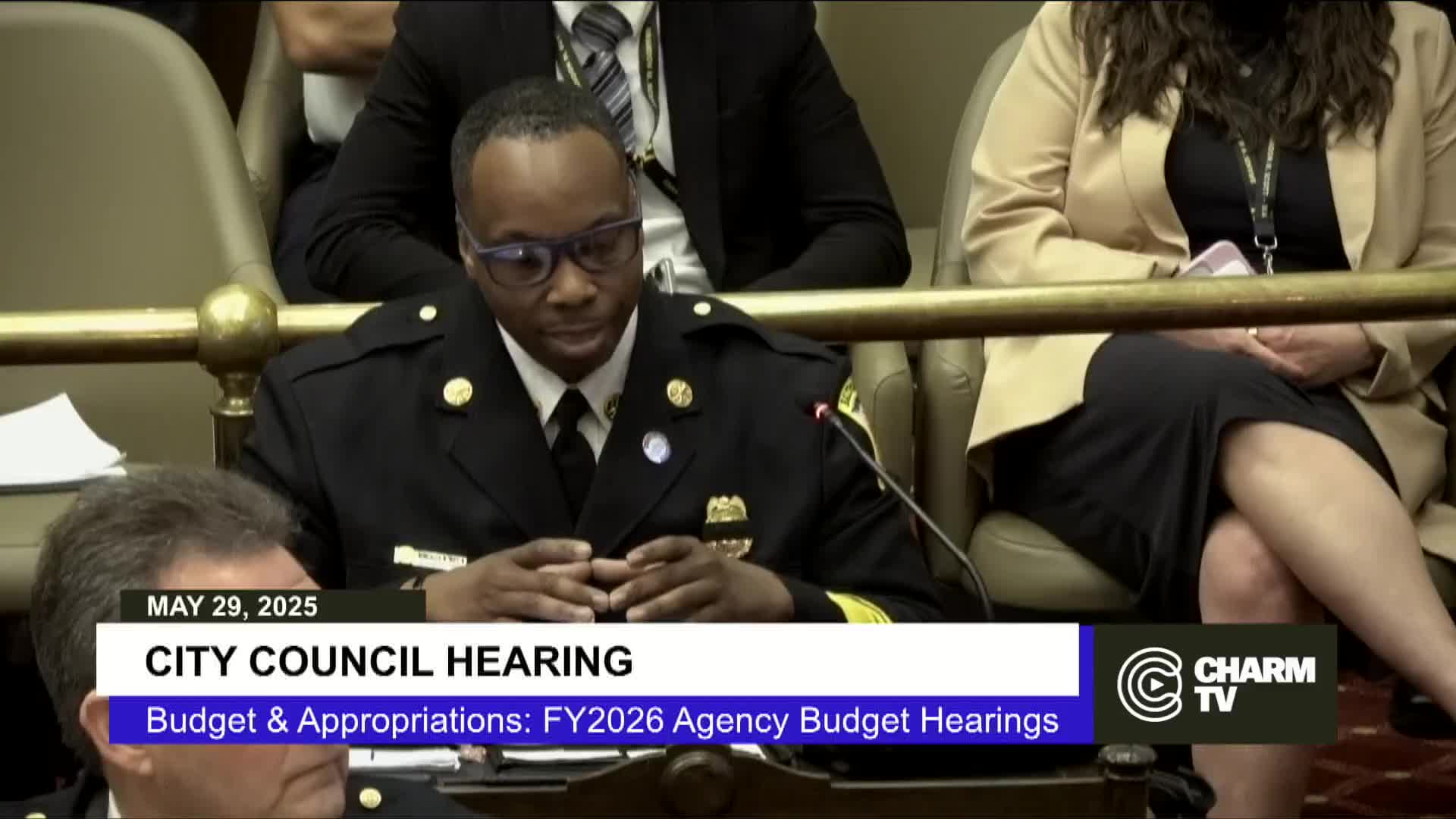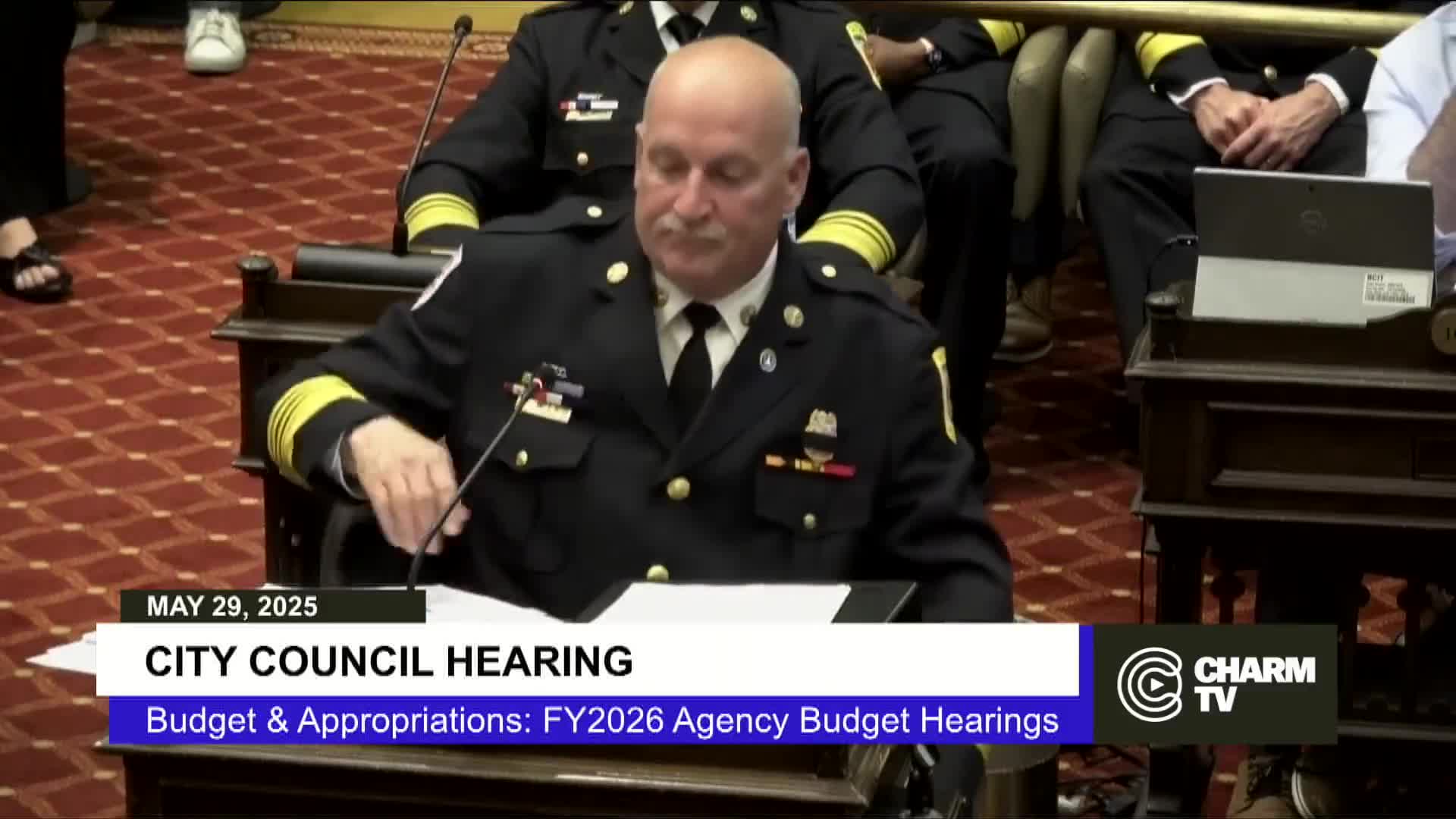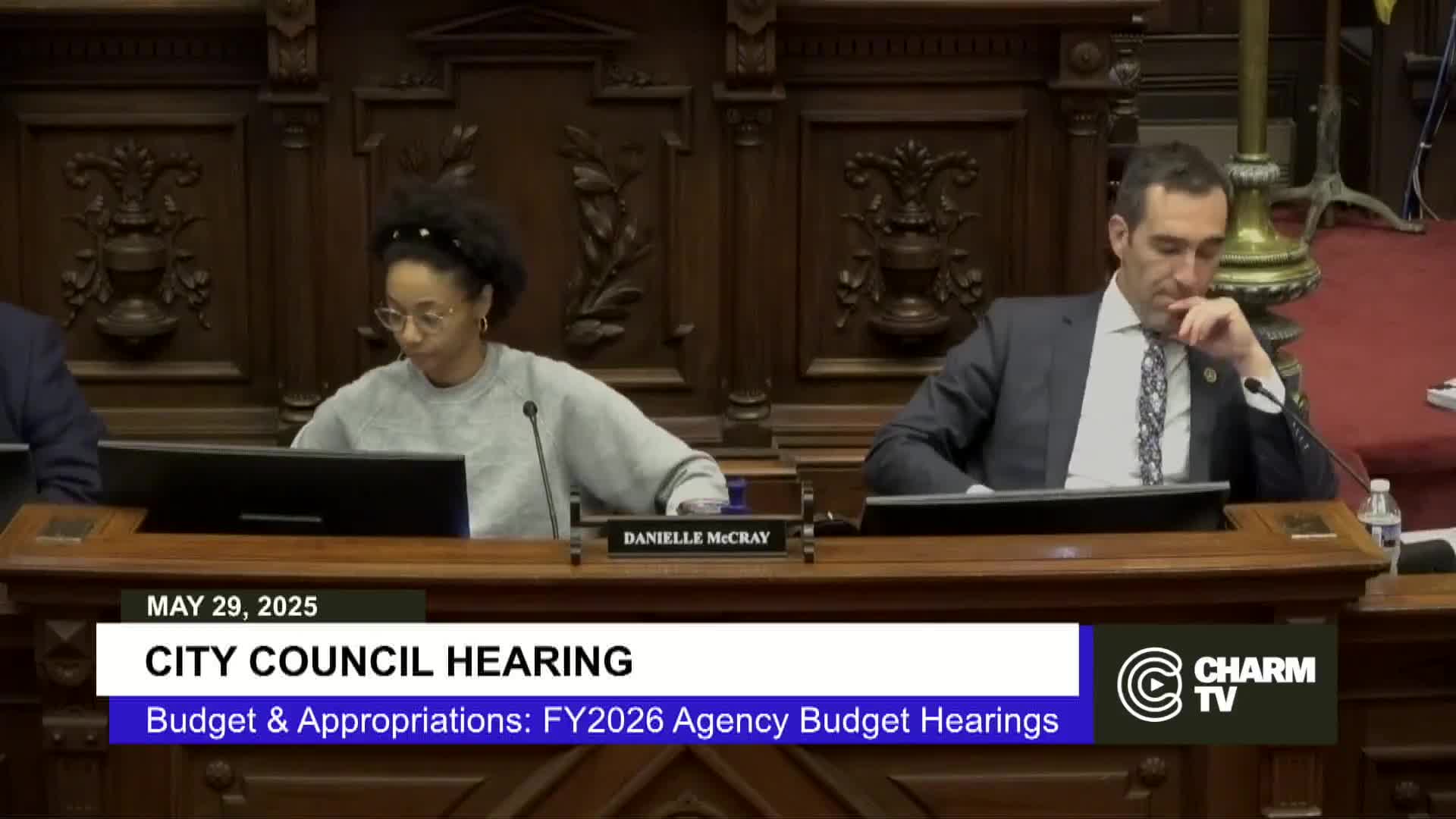Article not found
This article is no longer available. But don't worry—we've gathered other articles that discuss the same topic.

Baltimore 911 describes geofencing, cloud telephony and AI tools as part of modernization; center reports full staffing

BCFD’s leave‑behind Narcan program reports large distribution and reduced calls, officials say

Fire marshal launches website and third‑party pilot; council funds two new inspector positions

Baltimore Fire Department cites staffing shortages, high overtime and a push for new recruitment and training pipelines

